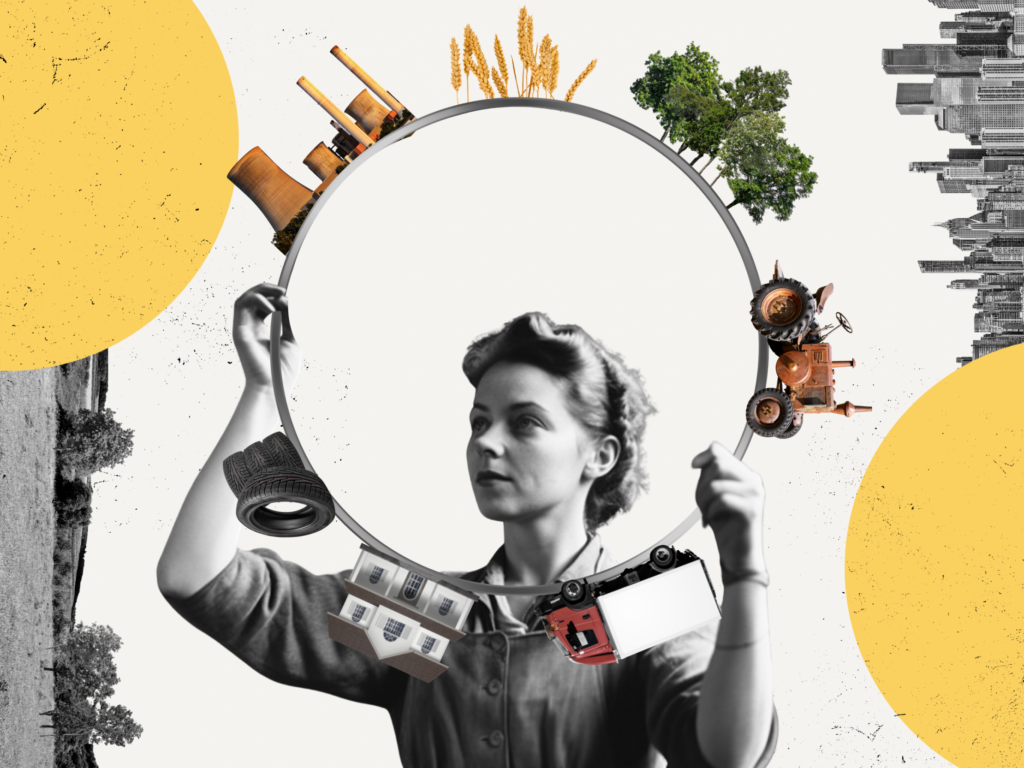
Introduction
In the quest for a sustainable future, the concept of a Circular Economy has gained prominence as a transformative approach to consumption and resource management. This article explores the principles of a Circular Economy, emphasizing the shift from a linear, wasteful model to a more regenerative and sustainable system that redefines how we use and value resources.
1. Understanding the Linear vs. Circular Economy Models
We begin by dissecting the differences between the linear and circular economy models. The linear model, based on “take, make, dispose,” is contrasted with the circular model, which prioritizes reducing, reusing, recycling, and regenerating resources. Understanding this fundamental shift is key to grasping the essence of a Circular Economy.
2. Designing for Durability and Repairability
Central to the Circular Economy is a focus on creating products with longevity and ease of repair. We delve into how designing items for durability, repairability, and eventual disassembly fosters a culture of responsible consumption, reducing the need for constant replacements.
3. Promoting Sharing and Collaborative Consumption
The rise of sharing economies exemplifies the circular approach. We explore how collaborative consumption, sharing resources, and embracing services like ride-sharing and tool libraries contribute to reducing individual ownership and overall resource demand.
4. Embracing Product Life Extension
Extending the lifespan of products is a key tenet of the Circular Economy. We examine how practices like refurbishing, remanufacturing, and upgrading contribute to product life extension, mitigating the environmental impact of constant production and disposal.
5. Optimizing Recycling Processes
While recycling is crucial, optimizing recycling processes is equally important. We discuss advancements in recycling technologies, the importance of proper waste segregation, and how circular design principles enhance the effectiveness of recycling initiatives.
6. Closing the Loop in Supply Chains
Circular Economy principles extend to supply chains, emphasizing closed-loop systems where materials are continuously reused. We explore how companies are rethinking their supply chain practices, fostering partnerships that prioritize resource efficiency and waste reduction.
7. Educating Consumers on Sustainable Choices
Empowering consumers with knowledge is integral to the Circular Economy. We delve into the importance of consumer education, transparency in product information, and the role of certifications in guiding individuals toward more sustainable choices.
8. Investing in Innovation for Circular Solutions
Innovation plays a pivotal role in transitioning to a Circular Economy. We explore how investments in research and development foster the creation of new materials, technologies, and business models that align with circular principles, driving systemic change.
9. Government Policies and Regulatory Support
Government policies are instrumental in shaping the business landscape. We discuss the role of regulatory frameworks, incentives, and collaborations between public and private sectors in creating an environment conducive to circular practices.
10. Global Collaboration for Circular Progress
Circular challenges often transcend national borders. We highlight the importance of global collaboration, knowledge-sharing, and joint initiatives in advancing the Circular Economy agenda on a larger scale.
Conclusion
The Circular Economy represents a paradigm shift in how we produce, consume, and manage resources. By embracing the principles of circularity, we not only reduce the environmental impact of our activities but also create a more resilient and sustainable future. This article serves as a call to action, encouraging individuals, businesses, and policymakers to rethink their roles in creating a Circular Economy for a sustainable tomorrow.
